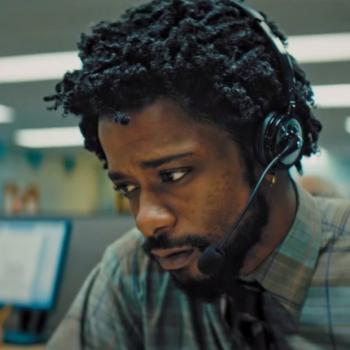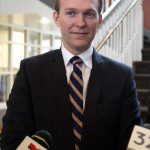Indulge me a moment in some reflections on how I think about a portion of my scholarly life and activities in personal, religious terms.
Nearly 40 years ago, Eugene England delivered an address to young BYU students called “Good Books or True Religion? Defining the Mormon Scholar.” In this essay, England lays out a vision of the Mormon scholar modeled on Elder B. H. Roberts:
You must develop your own vision of what, as an intellectual, your contribution to the Kingdom might be, of how you might love the Lord as he commanded-with all your mind, as well as your heart, might, and strength…. [W]ith the courage to go creatively beyond that tradtion in finding a way to be properly loyal to your special gifts and to the Church and the restored gospel….President [B.H.] Roberts, of course, is not suggesting that the intellectual’s task is to create new doctrine, but rather it is to take revealed doctrine and give it new formulations that will relate to the changing world we live in, that will enable us, for instance, to more effectively criticize our flawed social, political, artistic and intellectual environment by using the great germ-truths of the gospel.
My professional, intellectual, and religious life do not intersect in precisely the ways that England hopes of future generations, but much of this call rings true to me today. The work of the Mormon intellectual is thinking about and framing the questions of church teaching in relation to the changing world. Robert’s notion of developing truth, expounding of the message of the gospel, is the central feature of intelligent discipleship.
England offers this vision for the future with a sense of despair about the state of the Mormon intellectual, and his exhortation is explicitly meant as a corrective to his generation’s failures. England warns of the polarization that he saw developing in his peers: “I ask you to reject the labels of this previous generation that have fragmented our intellectual community and to some extent the larger Church-I mean labels like ‘orthodox’ and ‘unorthodox,’ ‘liberal’ and ‘conservative.’ These are gentile terms and have no place in a community of the Saints, if used to hold oneself apart and reject others from fellowship, love, and forgiveness.” What has happened in the ensuing 40 years since this plea, and what were the circumstances that led up to England’s vision of a less-fragmented Mormon intellectual scene?
At the turn of the 20th century, Mormon leaders and intellectuals were devoted to thinking about Mormonism in the context of the new age, bringing the best ideas into conversation with the tradition and producing several important works. Thinkers like Roberts, Talmage, and Widtsoe were models in this period. Much of the rest of the century represented retrenchment from that ideal and discourse in the church became increasingly self-referential, and even hostile to modern thought. In the 1960’s and 70’s there was a new surge of Mormon intellectual activity, primarily from those outside the church’s hierarchy. New Mormon History was rising up, and headed for collision with church authority.
England’s warning about fragmentation was tragically prophetic. In the 1980’s and early 90’s a robust Mormon intellectual movement frequently found itself in tension with church authorities and between themselves. In the early 1990’s the rise of the professionalized apologists on the scene added to the tensions.
For many young Mormon intellectuals of the past decade, who grew up in the wake of the 1990’s, the goal of resetting the territory and redefining the conversations has been central. These thinkers have sought to avoid controversy and confrontation, willing to engage with the best ideas and tackle challenging problems. Still, England’s vision of a Mormon intellectual community that was not in conflict between “liberals” and “conservatives” has remained elusive. Why has the insistence upon orthodoxy and the polarization around certain ideas been so successful against this vision of community of Saints in full fellowship with one another? No doubt there is cultural and financial capital at stake in ideological warfare. For those of us without the taste of bloodsport of Mormon intellectual life, the divisions within the religious community of Saints giving their minds to the Kingdom are sometimes tragic. As new individuals and institutions seek to bridge these chasms to reflect the new generation, they remain mired in the politics of division that constrain the landscape of Mormon thought.
What is the solution? As one of the apostles of Mormon intellectuals, England concludes his remarks with a blessing. Perhaps only such a blessing can bring about the necessary healing:
May you succeed where too many of us have not and even go beyond where we have succeeded. May you be more self-confident, more accepting of the gift God has given you….blessing your brothers and sisters with your gift, acting bravely to communicate its values to them and freely forgiving and asking forgiveness when your exercise of your gift is misunderstood or mistaken. In these ways, and in others that he may help us discover, I ask the Lord to bless us all, in order that we might use his gift of intelligence as he would want us to.
Amen.











